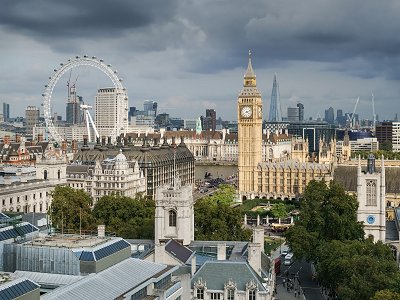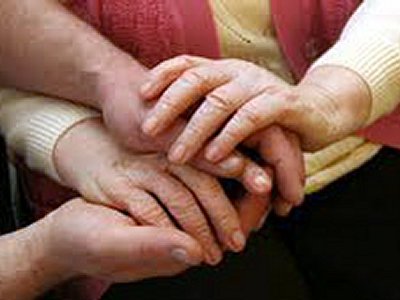
ARE WE BETTER THAN THIS?
Why are things so ***t?
This was the question asked of veteran journalist Gavin Esler by a member of the public who recognised him in Devon one day.
It was a very British kind of question, pithily and crudely expressing an underlying feeling right now and Esler has set out to answer it in Britain Is Better Than This (Head of Zeus, 2023). It isn’t a pretty picture and will also be contested. When a government has been in power for thirteen years, blame for outcomes is hard to refute, but there are some who do. Some, but a declining number.
Gavin Esler’s previous book, How Britain Ends, looked at the demise of the Union, propelled by Brexit. Esler himself was a member of Change UK, so his position as a remainer is well documented. Scotland’s vote to remain contrasted sharply with an English nationalist vote to leave; Northern Ireland’s fragile peace was put greatly at risk by deepening the divide between the island’s north and south. As a political movement, the Conservative and Unionist Party seemed to defy their name.
Britain Is Better Than This exposes the lack of a codified constitution as a growing risk. The UK’s deliberately vague and amorphous unwritten constitution has often been a source of its proud exceptionalism. We do it differently because we can, and we pull it off. Esler notes the almost sacred tones in which this is expressed. It is a mystery, with rarefied, opaque language similar to eucharistic liturgy. But when the constitution is essentially unwritten, commentators rather than judges take precedence. And there is elasticity: the constitution is what those with power say it is at any given moment. The Crown, the government and the State seem to be used interchangeably, according to the need. If this has worked in the past, it is because of Britain’s ‘good chap’ theory of government, so called because whatever uncertainty may prevail, decent, well educated, public spirited people can be relied upon to make it work.
Esler’s point, reasonably put, is that the cracks are showing and more people are putting their fingers through the holes to make them bigger. The Queen’s proroguing of Parliament in 2019 at the request of Boris Johnson was ruled unlawful by the Supreme Court, showing the system can rectify issues, but it demonstrated the risk of future, unscrupulous leaders exploiting those cracks. Benjamin Netanyahu’s attempted curtailing of judicial power in favour of executive authority has set a model which others may follow. Esler’s case for a written constitution and also for electoral reform to introduce fairer systems of proportional representation are not panaceas and he seems to recognise this, while also preferring them.
As a journalist he is on assured ground in the assessment of what the Rand Corporation has termed truth decay: the growing ascendency of the lie in public debate. Telling fibs in politics is as old as politics, but he and others identify newly organised patterns of lying; untruths being told as a deliberate strategy. This is murky territory for the democratic world. Across global, digital media, we disagree more about facts, blur fact and opinion, prefer personal experience to facts and trust historic sources of information less. Esler’s desire to see media literacy taught more effectively, as Nordic countries do, is well put. Deepfake technology is only going to make judgments harder. Courses and syllabuses with a ‘media’ prefix are still considered unserious in some circles, but without this kind of literacy, Britons may become prey for some ugly predators.
In 2020, the Edelman Trust Barometer put the UK in twenty-seventh place out of twenty-eight OECD nations for trust in democratic institutions; only Russia lay below. Britian’s mythical capacity for ‘muddling through’ is based in part on our ability to ignore bad news until we can do no longer; kicking the can down the road may be a truer expression. Gavin Esler has done us all a favour by showing what is at stake. The book’s opening question: Why are things so ***t?, however, only takes us so far. By the end we know why, at least in part. What we are able to do about it is the future defining question.
In 1998, Jonathan Freedland’s book Bring Home The Revolution struck a nerve. The UK was transitioning from a tired government to a younger, more energetic one; the tech revolution was taking off, millennial optimism was everywhere. Freedland believed the time was right for the UK to become a republic with a written constitution like the USA. A lot has happened since then, and where Freedland’s book captured the hopefulness of the time, Esler’s feels more like a lament; a cry for a better world in the face of the facts.
His implicit call for us to live in truth (as the late Czech president Vaclav Havel would put it) carries most conviction. We have an uneasy, open marriage with the truth in public and in private (where research shows we all lie far more than we realise). The whole idea of ‘my truth’ rather than, more accurately, ‘my story’ shows how close we are to collapse. My truth does not set me free. If we have a residual sense the truth sets us free, we also get what David Foster Wallace meant when he said: the truth will set you free, but not until it has finished with you. Words Christ perhaps left unsaid. Big ideological changes are not afoot in Britain today, but culture is formed of a million daily interactions, where the glue of trust sticks and the power of imitation prevails. Telling porkies when others don’t is a tough gig.
Also posted on www.seenandunseen.com





